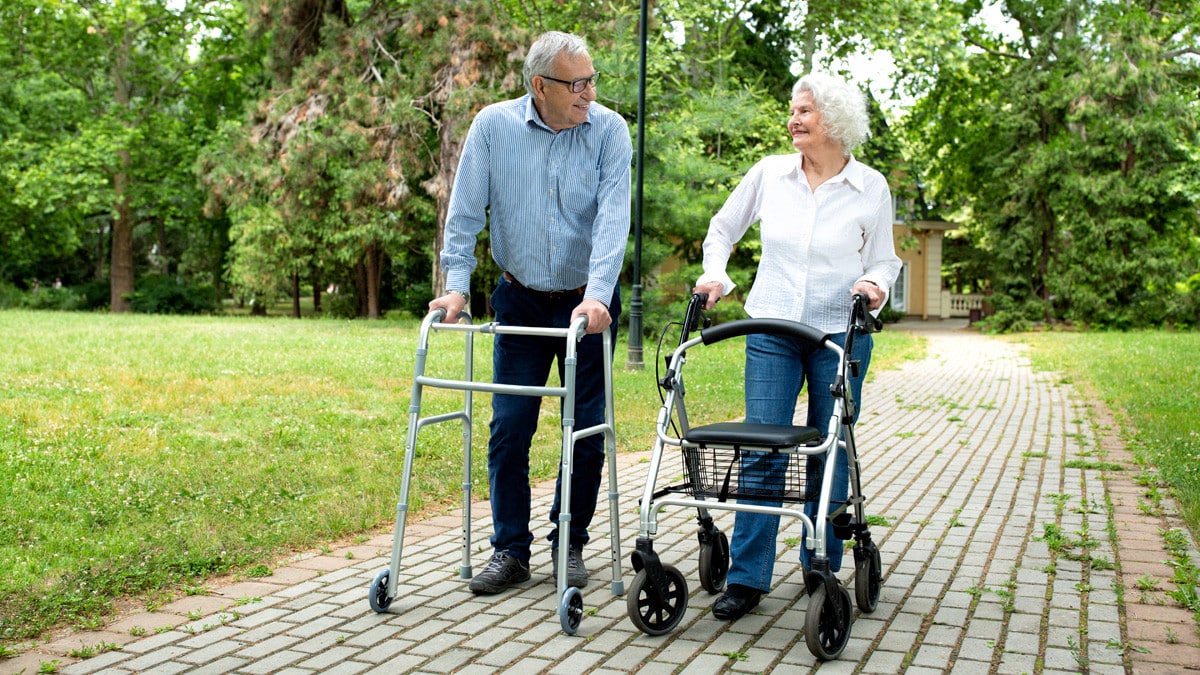Mental health is a crucial aspect of overall well-being, throughout all our life stages, and aging is no exception. For our elderly loved ones, mental health becomes even more vital given the physical limitations and onset of conditions that invariably come with old age. Therefore, it’s important to understand how aging affects mental health, including the common issues that older adults face and their impact on holistic wellness. This also involves learning to communicate effectively about mental health to encourage dialogue without stigmatizing or being judgmental. However, it’s equally significant to incorporate the help of professionals and community resources, as this not only aids mental health but also provides wholesome support throughout their advance years.
Understanding aging and mental health
Title: The Intricate Dance between Aging and Mental Health
Aging is a beautiful symphony of life, one that brings wisdom, sweet memories, and the gift of deep-felt experiences. Just like the growth rings in an aged tree, each year brings new stories of strength and resilience. Yet it’s equally essential to recognize how aging influences another crucial aspect of life: mental health.
As families and loved ones grow old, it’s not just the physical health that requires attention, but mental well-being forms a significant fragment of the puzzle too. Let’s delve into understanding the relationship between aging and mental health, and explore ways to navigate this intricate dance of life.
Aging is, indeed, an inevitable part of life, influencing each aspect of human development, including mental health. The brain, like other parts of the body, changes over time. Many elderly people maintain healthy brains and enjoy good mental health, but some face challenges that may lead to anxiety, depression, and cognitive disorders.
Depression and anxiety are not normal parts of aging, contrary to some misconceptions. While it’s normal to feel grief over the loss of loved ones or anxiety about declining health, persistent depression or anxiety is a matter worth addressing. These conditions can interfere with one’s daily life and routine, making it vital to recognize signs and symptoms early.
Cognitive disorders, such as dementia and Alzheimer’s disease, often escalate with age. The early signs can include memory loss, confusion, social withdrawal, or difficulty completing familiar tasks. However, it’s important to remember that not every memory loss or confusion is a sign of cognitive disorder. Sometimes it could be temporary and reversible, a result of other health factors like nutrition deficiencies or medication side-effects.
One remarkable thing about aging is the resilience it brings. Just as a tree gains strength with each added growth ring, so does an aging person gain wisdom and resilience. Mental health can flourish in this resilience. Cultivating emotional resilience can help older adults adapt to changes, endure stress, and recover from adversities, ultimately enhancing their mental health.
To ensure mental wellness, it is critical to stay physically active, maintain a healthy diet, foster social connections, and engage in stimulating physical and mental activities. Regular health check-ups and open conversations about mental health can diffuse stigma and open the door to appropriate help, if needed.
Remember, it’s never too late to seek help. Mental health matters at every age.
In conclusion, aging and mental health walk hand-in-hand. Aging might bring a shifting landscape of mental health and a different set of challenges, but it also brings enhanced resilience and strength. The key is to embrace the journey with grace, understanding the changes, and seeking necessary help while prioritizing mental well-being and cherishing the wisdom this beautiful dance of life brings. With knowledge comes power – the power to age gracefully and healthily, both physically and mentally.

Effective communication strategies
Fostering Effective Communication about Mental Health with Elderly Loved Ones
As family-centric folks nurturing our own little nests, it’s crucial to remember an essential part of our family tree- our elderly loved ones. Amidst the whirlwind of managing busy homes and raising children, it’s unavoidable that attention often turns towards the younger generations. Yet, it’s just as important that we don’t lose sight of those who’ve shaped our lives and our families – our elders.
While age can bring wisdom and life experience, it also comes with its set of challenges, particularly in regards to mental health. Mental health in our elders isn’t a topic frequently discussed at the dinner table, but it’s a conversation that needs to happen. And it’s our job to create a safe space for it. So let’s tackle some steps toward effective communication about mental health with our elderly loved ones.
First and foremost, compassion and patience are the cornerstones of this journey. Entering conversations about mental health requires delicacy, understanding, and a willingness to truly listen. Make it clear that the discussion is driven by concern for their wellbeing rather than an indictment of their capacity.
Next, arm yourself with knowledge. Returning to the basics of active listening and empathic communication can break down walls. Remember, this is not a detective activity; it’s about creating dialogues that allow your elderly loved one to express themselves without feeling judged or pressured.
Visual cues can often speak louder than words. Nonverbal communication, from maintaining eye contact to showing receptive body language, can encourage openness. It’s imperative that we present ourselves as approachable and patient in these discussions.
Keep the channels of communication open by fostering an ongoing dialogue rather than a one-off lecture. Let them know that they’re not alone on their mental health journey and that their feelings and concerns are valid. Make a point to check in regularly about how they are feeling, instead of only addressing issues when they arise.
While we’re nurturing connections at home, let’s not forget about professional assistance. Even as much as we love our elders, we may not always be equipped to provide the help they need. Encourage them to seek therapy or counseling if needed, and offer to participate in sessions to understand their perspective better. Collaborating with health professionals ensures that our loved ones get the comprehensive support they deserve.
Lastly, welcome them into your world. As families, we’re a team player in our loved one’s mental health. By including them in regular activities, they’ll know and feel they’re still an integral part of the family. A game at the park, a family movie night, or even just a walk around the neighborhood can drastically improve their mental wellbeing.
Our family trees thrive when every member feels nurtured, loved, and understood. By reaching out to our elders, we teach our children to value and care for the generations that came before them, reinforcing the fruitful cycle of love, respect, and understanding. Let’s light the way for future generations by showing them that fruitful families take root when every member is given the care they need – young or old.

Integrating professional help and therapies
There’s no shortage of professional help and therapies that can make an immense difference in managing your elderly loved one’s mental health issues. Let’s explore the different types of assistance available, all specifically designed to meet their unique needs and challenges.
Geriatric Psychiatrists are experts in addressing the complex interplay between mental and physical health that can be common in older adults. They are skilled in the diagnosis and treatment of disorders like depression, anxiety, and dementia. Older adults often have unique experiences, like the loss of loved ones or diagnoses of chronic illnesses, which may contribute to mental health issues. Geriatric psychiatrists take all these factors into account when laying out a treatment plan.
Another invaluable resource is Geriatric psychologists who specialize in understanding the mental and emotional effects of aging. They can be instrumental in helping seniors come to terms with grief, stress, anxiety, and loss. They focus on enhancing overall wellness and mental resilience using various therapeutic approaches.
Clinical social workers provide a broad range of services, including assessment, therapy, crisis intervention, and helping the elderly connect with community and governmental resources such as Medicare or food aid. They can also serve as advocates for clients within the healthcare system or coordinate care provision, making sure everyone is working towards the same goals.
Psychotherapists can administer several therapies. Cognitive-behavioral therapy (CBT), for instance, can be particularly beneficial to older adults struggling with anxiety or depression. CBT involves challenging negative patterns of thought and promoting healthier behaviors.
Another effective treatment is reminiscence therapy or life review therapy, which involves discussing past experiences with a therapist to elicit positive emotions and reduce stress. This can be especially beneficial for older adults who may have unresolved issues from their past.
Occupational therapists offer a slightly different angle by helping older clients to maintain their independence and keep doing the things they love. This could mean helping them adapt to physical challenges, manage daily medications better, or find new hobbies that accommodate their unique situations.
Then there’s art therapy or music therapy. These are forms of expressive therapy that uses the creative process of making art, whether it’s making music, painting, or crafting, to improve and enhance physical, mental, and emotional wellness.
Lastly, many older adults find benefit in complementary therapies like meditation, tai chi, yoga, and acupuncture. These therapies can help reduce stress, promote relaxation, and foster a sense of well-being, which can indirectly boost mental health.
It’s crucial to keep in mind that what works for one individual might not work for another. Be open to exploring various options and protocols until you find the right therapeutic approach for your elderly loved ones. Remember, the most important thing is to ensure that they feel heard, understood, and respected in their journey towards mental wellness. Each step you take together in facing these challenges is a testament to your love and commitment to their well-being.

While dealing with the mental health concerns of elderly loved ones can be challenging, it is certainly manageable through understanding, communication, and professional help. A comprehensive approach that integrates these aspects can transform this daunting task into a journey of shared growth and learning. This ensures that your loved ones experience their golden years in the best possible mental health and thrive in their later life. It’s essential to remember that mental health is just as important as physical health, especially in our twilight years. After all, aging is not merely about surviving, but living well.


